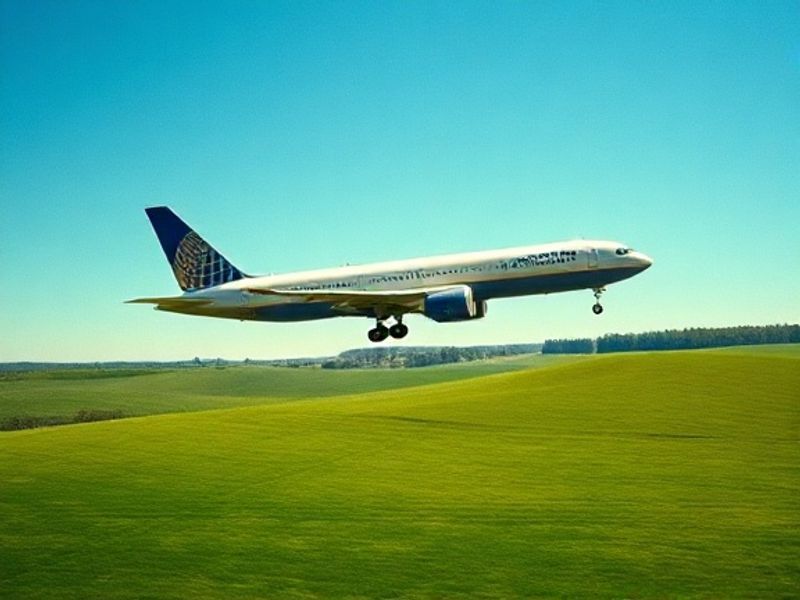Flight 93: How a Pennsylvania Field Became the World’s Most Expensive Civics Lesson
Flight 93: The World’s Most Expensive Civics Lesson, Taught at 30,000 Feet
By the time United Airlines Flight 93 nosed into a Pennsylvania field on 11 September 2001, the planet’s collective cortisol level had already red-lined. In London, traders were dumping airline stocks faster than you can say “actuarial nightmare”; Tokyo’s Nikkei was tripping circuit breakers like a drunk salary-man on karaoke night; and in Riyadh, oil futures were doing the sort of spiky gymnastics that make hedge-fund managers reach for the Xanax. But while the world’s financial capitals performed their panic choreography, a Boeing 757 was quietly becoming the first global classroom of the new millennium—complete with screaming, smoke, and a crash course in participatory democracy.
The passengers hailed from at least six countries, which meant the last conference call of their lives was an inadvertent model of multicultural cooperation. A German businessman, a Japanese college student, and your cousin Gary from New Jersey all voted—yes, voted—on whether to rush the cockpit. They armed themselves with nothing sharper than coffee pots and bad language, thereby ruining Hollywood’s future box-office prospects for believable action heroes. In a world increasingly obsessed with biometric passports and border walls, here was a flying United Nations committee deciding that citizenship mattered less than immediate, collective inconvenience for hijackers.
International reverberations were as instant as the CNN chyron. Brussels bureaucrats shelved the latest draft of the Common Agricultural Policy—because who cares about butter subsidies when trans-Atlantic flights are turning into kamikaze missions? Within 48 hours, NATO invoked Article 5 for the first (and, to date, only) time, collectively shrugging: “An attack on one is an attack on all, even if the battlefield happens to be coach seating.” Vladimir Putin, never one to miss a good funeral, phoned Washington to offer condolences and, presumably, to note that Russia had been dealing with its own airborne unpleasantness for years; the subtext read, “Welcome to the club, wear the mask.”
Economically, Flight 93 was the straw that grounded the camel. Airlines bled $15 billion in a week, proving that even the most robust global industry can be kneecapped by nineteen zealots armed with box-cutters and a medieval syllabus. Insurance underwriters—those cheerful folk who price catastrophe like a wine list—quietly reclassified aviation risk somewhere between “Chernobyl picnic” and “drunk texting your ex.” Frequent-flyer miles suddenly felt less like currency and more like IOUs from a chain-smoking god.
Culturally, the wreckage fertilized a thousand think pieces. European editorialists discovered American heroism, which they promptly filed under “novelty.” Arab satellite channels toggled between condemnation and conspiracy, proving that cognitive dissonance is bilingual. Meanwhile, China—ever the pragmatic superpower—saw an opportunity to speed up its own airport security theater, debuting millimeter-wave scanners that could spot a paperclip in your soul and still miss the bribe in your pocket.
Two decades on, the field outside Shanksville has become an obligatory stop on the global grief-tourism circuit, nestled somewhere between Auschwitz and the Killing Fields on the map of “Places to Feel Properly Somber Before Lunch.” World leaders lay wreaths, selfie-seekers adjust filters, and souvenir stalls sell fridge magnets shaped like the memorial’s wind chimes—because nothing says “never forget” quite like chilling your rosé with a metallic reminder of airborne martyrdom.
The broader lesson, if the planet has learned anything, is that when institutions dither, ordinary people occasionally improvise spectacularly. Flight 93 did not end terrorism; it merely upgraded its syllabus. But it did provide a rare, unscripted moment when nationality, religion, and credit score evaporated at cruising altitude, leaving only the raw, inconvenient fact that sometimes strangers vote with their feet—and, in doing so, redraw the margins of what’s possible before breakfast.
So here’s to the improvised parliament of the skies: may their hurried referendum on human nature continue to inconvenience ideologues everywhere.







